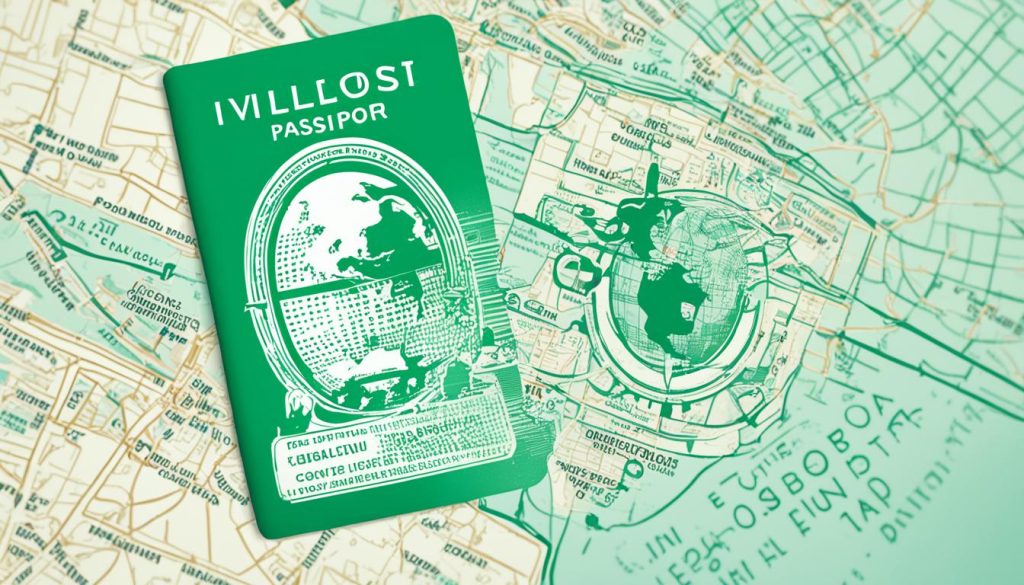Starting a business in Portugal is great because the country is focused on tourism, manufacturing, and agriculture. Portugal has a mix of economy types and is part of the EU and Eurozone. This means there’s a skilled workforce and living costs are good for businesses. However, setting up a business here involves dealing with Portuguese bureaucracy. But don’t worry! With the right advice, you can handle visa needs for those outside the EU, analyze the market, choose the best kind of company, and do all the legal paperwork needed to get started.
Key Takeaways
- Portugal offers opportunities in sectors like tourism, manufacturing, and agriculture.
- Mixed economy with EU and Eurozone membership provides stability.
- Skilled workforce and favourable living costs enhance business appeal.
- Understanding Portuguese bureaucracy is crucial for a smooth company setup.
- Comprehensive market analysis and visa requirements form key initial steps.
Introduction to Starting a Company in Portugal

Portugal is great for starting a business, thanks to its location, strong economy, and skilled people. The variety in its business environment means knowing the basics is key to success. This will really help your business grow in Portugal.
Why Portugal is an Attractive Business Destination
Portugal is attractive for many reasons. It’s where Europe meets the Atlantic, so it’s easy to reach other markets. The cost of living and doing business is lower, attracting companies from around the world. Its workforce is talented and speaks many languages, adding more appeal.
Overview of the Portuguese Economy
The Portuguese economy is stable, making it good for business. Key sectors include tourism, manufacturing, and farming, making the economy dynamic. Portugal is part of the EU and Eurozone, which makes trading in Europe easier. This variety suggests new businesses have a great chance to succeed.
Understanding Portuguese Bureaucracy
Setting up a company in Portugal means dealing with its bureaucracy. Though complex, knowing how to comply can make starting your business smoother. You’ll need to be thorough in paperwork and procedures to ensure your business runs well.
Visa Requirements for Entrepreneurs

Getting the right visa is key for entrepreneurs moving to Portugal, from the EU or beyond. It’s vital to understand the visa process for a smooth start and operation in Portugal.
Visas for EU Citizens
If you’re from the EU, you don’t need a special business visa for Portugal. Yet, you must follow the same steps as local businesspeople. This includes registering your business and following local laws.
Visas for Non-Eu Citizens
Non-EU entrepreneurs have several visa options, each suited to different kinds of businesses. Knowing these options helps make moving and starting a business in Portugal easier. You’ll likely need a business visa that fits your business idea.
Entrepreneur Visa and Portugal Startup Visa Details
The Entrepreneur and Portugal Startup Visas are for those focusing on innovation and starting new businesses. The Entrepreneur Visa is for investing and creating jobs. On the other hand, the Portugal Startup Visa suits innovative new companies. Both require a solid business plan and proof of financial resources.
The Investor Visa and Golden Visa Programmes
The Investor and Golden Visa Portugal programmes are great for big investors. These visas offer Portuguese residency in return for large investments in various sectors. The Golden Visa is very popular for its flexibility and business advantages it provides.
Select a Niche for Your Business

Choosing the right niche for your business in Portugal is crucial. It’s about finding what you love and spotting market needs. You also need to research competitors and demand. This helps you make a mark in the Portuguese market, combining your passion with consumer needs.
Identify Your Passion and Interests
It’s important to pick a business that matches your passions. Doing so gives you motivation and a strong sense of purpose. Think about what excites you and how it can turn into a business opportunity.
Understanding Market Problems and Needs
Market analysis is key. It involves identifying what your customers struggle with. Then, create solutions for these challenges. For example, in cities like Lisbon, offering time-saving services like meal kits is a great idea.
Researching the Competition and Market Demand
Knowing your competition is essential. It helps you understand what customers want and find gaps in the market. Look at what others are doing and see where you can do better. This research lets you know what to offer to stand out.
In summary, choosing a niche that you’re passionate about, understanding your customers, and researching the market are key. This plan will help you build a successful business in Portugal. You’ll offer something that speaks to you and meets customer needs.
Conduct Comprehensive Market Research

Market research in Portugal is key for smart business choices. It helps understand market trends, spot chances, and check competition. By looking at market size, customer types, and what competitors do, businesses can plan to succeed.
Methods for Conducting Market Research
In Portugal, entrepreneurs can pick from qualitative and quantitative research methods. Focus groups and interviews can uncover what customers like. Surveys and data analysis, however, measure market trends. Using both methods gives a complete market picture.
Assessing Market Size and Customer Demographics
Finding out the market size and learning about customers are key steps. Companies use different sources to collect info. This info helps understand the demand for products and how to meet customer needs.
Analysing Competition and Identifying Opportunities
It’s crucial to study the competition in Portugal. Knowing competitors’ strengths and what part of the market they control shows chances to stand out. A deep look into business chances helps find market gaps and attract customers with unique offers.
In short, thorough market research in Portugal helps businesses make clever choices, understand who they’re selling to, and find ways to grow and succeed.
Choose the Right Business Structure

Starting a business in Portugal means picking the right structure. This choice deeply affects your company’s finances and operations. Each Portuguese business type has its own needs, benefits, and downsides. It’s vital to think this through carefully.
Types of Business Entities in Portugal
Portugal provides several business structures for different needs:
- Individual Entrepreneurship (Empresário em Nome Individual): Perfect for those who want full control. It’s the easiest option for sole proprietors.
- Private Limited Company (Sociedade por Quotas or Lda): Best for small to medium businesses. It protects personal assets from business losses.
- Public Limited Company (Sociedade Anónima or SA): Great for big companies. It lets you raise money by selling shares but has stricter rules.
Advantages and Disadvantages of Each Structure
Knowing each structure’s pros and cons in Portugal helps you choose wisely:
- Individual Entrepreneurship:
- Advantages: Easy and cheap to set up, you make all decisions.
- Disadvantages: Your personal assets are at risk, hard to get investment.
- Private Limited Company:
- Advantages: Your personal wealth is safer, easier to attract investors.
- Disadvantages: Setting up is harder and pricier, you need a certain amount of capital.
- Public Limited Company:
- Advantages: Good for big business, can raise a lot of money.
- Disadvantages: You have to follow many rules, running it is complex.
Choosing the right business form is key to starting a company in Portugal. Each option has unique advantages and limits. They affect how you run your business every day and your future plans.
Prepare a Solid Business Plan
Making a strong business plan is key for any entrepreneur aiming to stand out in Portugal. It’s a roadmap that shows your vision and how you plan to grow. A good business plan must be clear, workable, and ready for any changes in the market.
Contents of a Business Plan
A proper business plan needs several crucial parts for a good strategy. These are important:
- Executive Summary: A brief outline of your goals, mission, and success keys.
- Company Description: Detailed info on your company, its story, who owns it, and its business type.
- Product/Service Overview: A full look at what you’re offering, its benefits, and how it beats the competition.
- Market Strategies: Plans based on research to enter the market, draw customers, and win against others.
- Financial Projections: In-depth money forecasts, including profit and loss, cash flow, and financial position charts.
Updating and Maintaining Your Business Plan
Portugal’s ever-changing market means you must regularly check and adjust your plan. Keep it updated to tackle new market trends, tech changes, and what your customers want. This makes your business plan a reliable tool for guiding your company, ensuring your strategy is both powerful and practical.
Start Legal Registrations and Paperwork

Starting a company in Portugal means you need to focus on legal requirements. You have to pick a business name and get a tax number. Each step is important to make sure your company is legal.
Registering Your Business Name
First, you must select and register your business name in Portugal. You need to check if your chosen name is free. Then, reserve it at the “Registo Nacional de Pessoas Colectivas” or RNPC. This is vital to avoid legal issues later.
Bank Account Setup and Capital Deposit
Opening a bank account in Portugal is another key step. You’ll use this account to put in your starting capital. The amount depends on your business type. After depositing, you get a certificate. This is needed for more company paperwork.
Obtaining a Tax Number and Legal Certifications
Getting a tax number, or NIF, is required in Portugal. It’s used for all tax matters. You might also need other legal permits for your business area. This makes sure you meet all legal needs.
Setting up a company in Portugal has several steps. Each one involves important legalities. Doing everything correctly helps your business start on solid ground.
Understanding Portuguese Business Culture

Getting to grips with the business culture in Portugal is key for success. It’s all about making strong personal connections, showing respect, and following the right etiquette. Here, we’ll look at what makes this culture tick.
Building Relationships and Business Etiquette
At the heart of Portuguese business etiquette is the importance of strong relationships. Informal meetings help build trust and set the stage for formal deals. Polite language and respect are musts in any interaction.
Giving gifts and going to social events are also part of strengthening bonds.
Communication and Meetings
In Portugal, how you communicate is very important. Meetings are formal, and being on time matters a lot. Starting with small talk can help in building stronger professional connections.
Always be clear, brief, and friendly. Your actions and words should show genuine respect and sincerity.
Registering Your Business Online or In-Person

When you register your company in Portugal, you have two main choices: online or in-person. You can choose the Empresa Online platform for an online setup. Or you might prefer the face-to-face help of the ‘Empresa na Hora’ service. Both ways make registering your business in Portugal easier.
Procedures for Online Business Registration
The Empresa Online platform lets you register your business from anywhere. It’s great for cutting down on paperwork. You just need a Tax Identification Number, a digital signature, and some start-up cash. It’s perfect for those looking to save time and steer clear of office visits.
Details of In-Person Registration
If you like doing things face-to-face, ‘Empresa na Hora’ is for you. You can set up your business quickly at their offices. Just bring your Tax Identification Number and your starting funds. It’s fast and gives you help right when you need it, making setup smooth.
Starting a Company in Portugal – Essential Checklist

Starting a business in Portugal means understanding the rules you must follow. It’s important to know each step to make starting your company easier. This checklist will guide you, showing the way to set up your company while following Portugal’s laws.
Step-by-Step Guide to Compliance
To comply with Portuguese law, new companies must take important steps. Here’s a simplified guide to follow:
- Reserve a company name and register it with the Portuguese Business Registry.
- Get a Tax Identification Number (NIF) from the Portuguese Tax Authority.
- Put the start-up capital in a Portuguese bank and show proof of this.
- Register for Social Security to meet local employment laws.
- Make sure your business joins the right regulatory bodies or chambers for your industry.
Overview of Necessary Documentation
Gathering the right documents is crucial for starting your company in Portugal. You will need:
- Tax Identification Number (NIF): Needed for all business activities and taxes.
- Business Registration: Shows your company name is reserved and registered.
- Bank Statements: Proof of your initial investment.
- Social Security Documents: Shows you’re registered with the Social Security Institute.
Keep your documents up to date to avoid any issues with the law.
Key Points to Ensure Smooth Operations
Following operational guidelines helps keep your business in line and running well. Key advice includes:
- Update your business plan as needed to match market or law changes.
- Communicate clearly and promptly with official bodies and tax authorities.
- Stay up-to-date with any changes in Portugal’s business laws.
By taking these steps, your business in Portugal will not only comply with the law but also thrive.
Develop a Lead-Generating Marketing Plan
Creating a marketing strategy is key for startups in Portugal. It helps grab their first audience and builds lasting interest.
Content Marketing Strategies
Creative content marketing can boost engagement and awareness. Aim for top-notch blog posts, articles, and multimedia.
Choose topics that matter to your audience in Portugal. This connects deeper and increases leads for startups.
Leveraging Social Media Platforms
Being active on social media is essential today. Facebook, Instagram, and LinkedIn reach a wide audience.
Make your content appeal to Portuguese users. This encourages interactive talks and boosts engagement. Be consistent and creative on social media.
Utilising Search Engine Optimisation (SEO)
SEO boosts your online visibility. It helps your business rank better on Google in the Portuguese market.
Use relevant keywords and local content. Optimised meta descriptions draw in organic traffic.
Good SEO understands local search habits. It makes your brand more visible in Portugal.
Importance of Hiring a Certified Accountant
Hiring a certified accountant is essential for businesses in Portugal. They guide you through the complex tax laws and keep your business in line with local rules. Their knowledge of the Portuguese tax system is invaluable. They make starting and managing your finances straightforward and effective.
Accountant’s Role in Business Registration
An accountant is critical during business registration. They help prepare and submit all required documents, making sure you meet legal standards. They understand Portugal’s tax laws and business rules well. This helps prevent expensive errors, so you can focus on your main business tasks.
They also set up important things like your tax ID and legal certificates. This makes the registration process go smoothly.
Benefits of Having a Financial Advisor
A certified accountant in Portugal does more than just help with starting up. They act as a long-term financial guide. They offer advice that helps improve your business’s survival and growth. Through clever tax strategies and financial planning, they assist in boosting your profit and financial stability.
They also offer continuous support to keep your business on track with tax regulations. This gives you peace of mind and lets you concentrate on growing your business.







